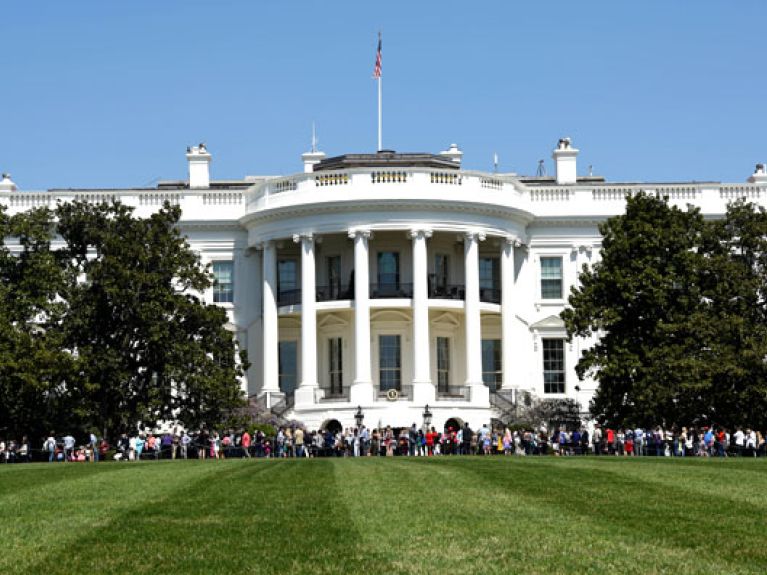A highly symbolic meeting

The New York Times:
“When President Trump welcomes Chancellor Angela Merkel of Germany to the Oval Office, their meeting will take on a symbolism unlike any he has held so far: The great disrupter confronts the last defender of the liberal world order. Mr. Trump and Ms. Merkel are poles apart on issues like immigration and trade; they have circled each other warily since the American presidential election. But both sides, officials said, are determined not to let this first meeting devolve into a clash of competing worldviews.”
Frankfurter Allgemeine Zeitung:
“Directly after Trump assumed office, Merkel reminded him of the western canon of values – she was then placed in the position of leader of the opposition. That may be flattering but the Chancellor cannot challenge him, among other things because this would show how disunited the Atlantic community evidently is. The Chancellor’s task is instead to convince this President, too, of the benefits of multilateral cooperation in times of great uncertainty and that US foreign policy has been a success as regards Europe.”
The Washington Post:
“He has tried to close the door on Muslim refugees. She opened it. He calls himself a tough negotiator. She’s an even-tempered consensus builder. He wants to put America first. She is first and foremost a globalist.
President Trump is set to meet German Chancellor Angela Merkel this week at the White House, marking the first face-to-face encounter between the new U.S. commander in chief and the woman known as “Europe’s decider.” When they meet, the two leaders with little in common will find themselves belatedly moving to forge a relationship that could determine the future of transatlantic ties.”
CNN:
“European leaders have been reassured by Trump's stronger commitment to NATO since taking office. But they're still uncertain about the kind of relationship he wants with Putin. Merkel played a central role in formulating Europe's robust response to Russia's annexation of Crimea and destabilization of eastern Ukraine, including the imposition of economic sanctions. Trump will acknowledge the leadership shown by Germany and France, but will make clear the U.S. wants to play a greater role in finding a solution to the Ukraine crisis, senior administration officials said.”
Spiegel Online:
“At least from Merkel’s viewpoint relations look decent as regards foreign and security policy, too. The German Armed Forces help strongly to this end at several crisis points where the US military is on the ground, for example: in Afghanistan, in the conflict in Syria and now in the Baltic, too. Alongside the USA, Germany is also one of Israel’s most loyal allies and Washington and Berlin have hitherto always been aligned in the relationship to Moscow.”

